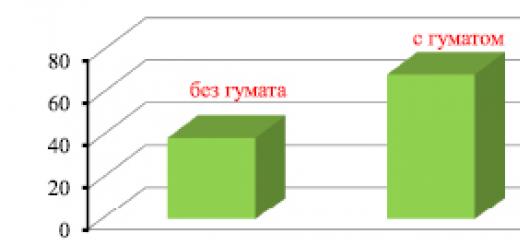SYSTEMIC PRINCIPLE (in psychology) - the need from a great variety of phenomena to isolate and isolate a specific category of naturally interconnected objects that acquire the meaning and character of a systemic one.
The internal structure of these objects is described in such concepts as element, connection, structure, function, organization, management, self-regulation, stability, development, openness, activity, environment, etc.
The systems approach as a methodological regulator was not “invented” by philosophers. He directed research practice (including laboratory and experimental work) in reality before it was theoretically comprehended. Natural scientists themselves singled it out as one of those working principles of science, using which one can discover new phenomena and come to important discoveries. For example, the American physiologist W. Cannon considered the principle of homeostasis synonymous with systemism as the dynamic constancy of the composition and properties of the system, its desire to maintain a stable state despite the influence of factors that violate it. The working meaning of this principle is that, guided by it, the researcher sees in any component and function of the system one of the devices that solves the main task - to keep it in balance. A systematic approach, allowing one to explain facts discovered at a purely empirical level, also has predictive value, guiding the search for yet unknown regulators that invisibly act in the system to ensure stability.
From studies of biological homeostasis, Cannon deduced “ general principles organizations”, valid for any “complex associations” (systems as opposed to “non-systems”): differentiation and integration of the functions of “cooperating parts” in order to solve a problem common to the entire system; coordination of external and internal agreements; self-regulation, ensured by timely receipt of signals about deviations from the “average position” and the accepted course, with the subsequent activation of mechanisms that restore stability, etc.
S. p. in the image of homeostasis turned out to be very productive not only in physiology, but also in other sciences, in particular, in psychology.
S. p. is not limited to homeostasis, although it serves as one of the important, heuristically strong embodiments. Mental organization is a systemic object that lives on its own, regardless of its cognition. In the centuries-old evolution of scientific psychological thought, various theoretical constructs have arisen that explain how this organization is structured, what parts it consists of, how they are connected to each other, how they work together, etc.
Scientific thought is required that this knowledge be built according to a certain logic, and that its various fragments be put together into a holistic picture that satisfies scientific research.
At the turn of XX and XXI centuries one of such logically constructed systems was developed - the categorical system of psychology (A.V. Petrovsky, V.A. Petrovsky, 2001), which characterizes the structure of the psychosphere. Its system-forming feature is the mutual transition of psychological categories “vertically” from essence to phenomenon, which acts as the essence for new phenomena. All these transitions are subordinated to the implementation of the idea of “ascent from the abstract to the concrete”, characterize the counter determinations of the biological and cultural-historical factors, and are modeled in a single scheme of philological- , onto - and sociogenesis form a natural connection of psychological categories.
A.V. Petrovsky
ABSTRACT
on this topic:
“The principle of systematicity in psychology”
Plan
Introduction
1. The concept of the principle of systematicity in science
2. Implementation of the principle of systematicity in psychology
Conclusion
Literature
Introduction
The system is an integral part of modern scientific theory. Without the principle of systematicity today, it seems, not a single science is possible. If we talk about a systems approach as a whole, then it usually means a special position of the researcher and an arsenal of tools that capture the subject under study as multi-quality, holistic and changing. Dynamic unity of the different, i.e. system is analyzed in terms of elements and structure, part and whole, organization and coordination, development, hierarchy, dimensions and levels, expressing the modern structure of any positive science. The specificity of systemic cognition lies in the possibility of describing and explaining integral formations of reality.
The idea of the systemic nature is precisely psychic phenomena acts as a definite result of the development of knowledge about the psyche and behavior. Being included in the universal interconnection of events in the material world, mental phenomena express the unique unity of the diverse properties of living beings. Together, they form a “functional organism” that allows animals (humans) to flexibly navigate, communicate and act in a changing world. The psyche objectively appears as a multidimensional, hierarchically organized, developing whole, or organic system, the functional components of which have a common root and are therefore inseparable.
Here begins a series of questions that are of fundamental importance for psychology. How to represent a mental phenomenon as a system? In what form do the components, structure, system-forming factors, levels of organization appear here? What properties do such systems have and how are they related to each other? It is obvious that outside of special studies, these and similar questions either remain rhetorical or receive an abstract and general solution that adds little to the understanding of the reality being studied. Therefore, the systemic principle in psychological science needs the most careful study, which explains the relevance of our work.
Consequently, the purpose of our work is to study the process of emergence and development of the principle of systematicity in psychological science.
The object of research in our work is psychological science.
Subject: system principle in psychology.
The goal, object and subject define the following tasks:
Consideration of the concept of systematicity in scientific knowledge generally;
Study of the origin and development of the system principle in psychology;
Determining the significance of this principle for psychological science.
The practical significance of our work lies in the fact that the material presented in it can be used when studying the course general psychology and human psychology, as well as for a more in-depth study of methodological problems of scientific knowledge within the framework of special courses and special seminars.
1. The concept of the principle of systematicity in science
Systematicity is an explanatory principle of scientific knowledge, requiring the study of phenomena in their dependence on the internally connected whole that they form, thereby acquiring new properties inherent in the whole.
Behind the apparent simplicity of the aphorism that “the whole is greater than its parts,” lies a wide range of questions, both philosophical and concrete scientific. The answers to them prompt us to find out by what criteria and on what basis a special category of objects is isolated from a great variety of phenomena, acquiring the significance and character of a systemic one.
The internal structure of these objects is described in such concepts as element, connection, structure, function, organization, management, self-regulation, stability, development, openness, activity, environment, etc.
The idea of systematicity has a centuries-old history of knowledge. Phrases " solar system" or " nervous system» have long entered into everyday language. From ancient ideas about the cosmos as an orderly and harmonious whole (as opposed to chaos) to the modern triumph of systems such as man-computer and the tragedies generated by the degradation of ecosystems, human thought follows the principle of systematicity.
Systems approach as a methodological regulator was not “invented” by philosophers. He directed research practice (including laboratory and experimental work) in reality before it was theoretically comprehended. Natural scientists themselves singled it out as one of those working principles of science, using which one can discover new phenomena and come to important discoveries.
From scientific thought it is required that this knowledge be built according to a certain logic and its various fragments be put together into a holistic picture that satisfies the principle of systematicity. Not all concepts pass the test of this criterion, therefore, in order to clarify the specifics of knowledge that is adequate to the principle of systematicity, they should be compared with several types of “non-systemic” theories.
There are several such types: holism, elementalism, eclecticism, reductionism.
Holism (from the Greek holos - whole, whole) absolutizes the factor of integrity, accepting it as a primary principle that cannot be deduced from anything. In psychology, a similar principle appeared in ideas about the soul, consciousness, and personality.
Consciousness or personality are indeed integrity, but systemic, therefore their study involves a special analysis of the area of phenomena designated by these terms, its multidimensional structure, levels of its organization, relationships with natural and social environment, mechanisms for maintaining integrity, etc. Only then does the prospect of building a theory that reproduces the properties and functions of consciousness and personality as system objects open up.
Elementarism claims that a system is built from elements that, interacting with each other, acquire a new quality as parts of the whole and lose it, falling out of this whole. Just as holism absolutizes integrity, seeing its foundations and active causes in itself, elementalism ignores the integrity of the system, considering each of its components to be a self-sufficient value. Its connections with other similar quantities are thought of as a connection, entering which they do not experience significant transformations.
Another antipode of systematicity is eclecticism (from the Greek eklektikos - choosing) as a combination of heterogeneous, devoid of internal connections, sometimes incompatible with each other, ideas and positions, the replacement of some logical foundations with others.
Another attitude opposing the principle of systematicity in psychology is reductionism (from the Latin reductio - moving back), which reduced either the whole to parts, or complex phenomena to simple ones. Reducing, for example, complex organized activity to a simpler “stimulus-response” relationship or to conditioned reflex prevents a systematic explanation of this integrity. The danger of a reductionist attitude incompatible with the principle of systematicity is especially great in psychology due to the uniqueness of its phenomena, “borderline” in relation to the biological and social.
In connection with everything said above, it should be noted that the history of psychological science itself in many ways acts as a history of the search for alternatives to the atomistic, essentially asystemic point of view on the nature of the psyche and behavior.
2. Implementation of the principle of systematicity in psychology
psychological science systematic
Aristotle was the first in the history of scientific thought, including psychological thought, to approve the principle of systematicity. He went through the school of Plato, where the soul was represented as an entity external to the body, falling apart into parts, each of which is located in one of the organs of the body (mind in the head, courage in the chest, lust in the liver). At the same time, Plato defended the position that expediency reigns in the world. Things in nature tend to imitate imperishable ideas. Imperfect human ideas are drawn to these ideas in anguish.
In Plato's teaching, the role of purpose was mythologized. But this role is not fictitious. Human consciousness is initially goal-oriented. Plato gave this property to all reality, where, in his conviction, it is not reasons that rule, as philosophers previously believed, but goals. The appeal to the category of goal prepared the development by Aristotle of the principle of systematicity.
Aristotle developed his system concept. She assumed that a living body has a physical composition (contains the same elements of which inorganic nature is composed), but in it the action of these elements occurs within certain boundaries and according to special internal principles established by its organization as a whole, on which the interaction of the parts depends. The body ceases to exist not due to the disappearance of one of the elements, but due to the collapse of its systemic organization. This organized whole is, according to Aristotle, the soul as “the form of a natural body potentially endowed with life”
It should be emphasized that the basis for the principle of systematicity approved by Aristotle in relation to the psyche was the rethinking of the broad “grid” of universal categories of cognition (part-whole, means-end, possibility-reality, structure-function, content-form, internal-external). They are philosophical and methodological, but the implementation of the principle of systematicity in specific sciences, including psychology, depends on them.
In the 17th century, with the advent of a new picture of the world, which put an end to the previous Aristotelian “forms” and “essences”, which presented the entire visible universe as moving according to the laws of mechanics, a new type of systemic explanation of the organism and its mental manifestations - perception, memory, affect, movement - emerged. An example of such an explanation was Descartes’ model, in which the organism was presented as a machine-like working device.
The most important postulate of the principle of systematicity in psychology states that all mental processes are organized into a multi-level system, the elements of which acquire new properties determined by its integrity.
System analysis: identifying the elements that make up the system and structural-functional connections (not reducible to causal ones), justification of its levels and system-forming factors, unity of organization and functions, stability and management.
Predecessors of the principle of systematicity in psychology:
Holism (without integrity the essence is lost)
Elementarism (the system combines elements whose essences do not change as a whole)
Eclecticism,
Reductionism,
External methodologism
The emergence of a systems approach - Aristotle b. The organism as a system, the soul, as an expression of the specificity of the human form of the organism, the beginnings of the concept of homeostasis, purposiveness as a manifestation of the target cause, as well as the principle of activity as movement towards both form and purpose. Soul and body in Aristotle’s concept are not separated as entities. The soul is the system-forming principle of the life of the body.
. Isomorphism- the presence of an unambiguous (actually isomorphism) or partial (homomorphism) correspondence between the structure of one system and the structure of another (at gestaltist c: the spatial configuration of perception is isomorphic to the spatial configuration of the corresponding excitation areas in the brain).
IN psychoanalysis systematicity was contained in the relationship between the work of consciousness and the unconscious, with immanent causality, which appears more likely in violations of the regulatory function of the integral structure of the personality.
Connection of systemic and causal analysis:
Concept I.M.Sechenova(there is an objectively given sensorimotor activity of the body and there is interior plan as an internalized, but at the same time transformative “duplicate” of this activity)
(May occur substitution the concept of the subject by the concept of the system by referring to expediency (including the orientation of the organism towards the “necessary future”). But then the concept of a system no longer serves as a principle within the framework of the development of psychological theory, but as a link that allows).
L.S. Vygotsky: two types of systems in humans:
Social situation
Sign system as a path to cultural determination
M.K. Mamardashvili, G.P. Shchedrovitskyʼʼ...psychology is a special sphere of mental activity, essentially capturing the entire universe of life activity, the entire society, with many scientific subjects and various kinds of techniques - anthropotechnics, psychotechnics, cultural techniques and a whole range of practices... including the practices of "communication" and "interactions"ʼʼ
B.F. Lomov’s interpretation of the psyche in the multitude of external and internal relationships in which it exists as a whole:
Polysystemicity of human existence
The integrity of its qualities and properties
The unity of psi reflection and activity that modifies reality
Ways to implement a systems approach in psychology:
- consideration of a phenomenon in several plans (or aspects): micro- and macroanalysis, its specificity as a qualitative unit (system) and as part of a generic macrostructure
- consideration of mental phenomena as multidimensional, for which the abstraction realized by their sequential consideration in any one plane should not cover all other possible planes.
- the mental system should be considered as multi-level and hierarchical. Subordination and autonomy of levels are the most important conditions for self-regulation of the system.
- The multiplicity of relationships in which a person exists entails the multiplicity and diversity of his properties. The construction of a “pyramid” of these properties is expected in cooperation with other sciences.
- There should not be a universal form of determination. Determination can be considered both as biological and social, and as a causal connection and as non-causal types of connection.
- the principle of development in which the contradiction between causes and conditions, systems and subsystems, etc. is resolved.
But this approach still needs to be specialized for psychology. There are disputes about its implementation.
An integral part of modern scientific theory is the principle of consistency. This is the explanatory principle of scientific knowledge, without which no science is possible. In general, the systematic approach implies a special position of the researcher and an arsenal of tools that capture the subject under study as multi-quality, holistic and changing.
The specificity of system cognition lies in the possibility of describing and explaining integral formations of reality. The systemic nature of mental phenomena acts as a definite result of the development of knowledge about the psyche and behavior.
Mental phenomena, being included in the universal interconnection of events in the material world, express the unique unity of the diverse properties of living beings and allow them to flexibly navigate, communicate and act in a changing world.
The idea of systematicity has a centuries-old history of knowledge, and as a methodological regulator, the systems approach was not “invented” by philosophers. Before the principle was theoretically understood, it actually guided research practice, including laboratory and experimental work.
The principle has a working meaning and lies in the fact that the researcher sees in any component one of the devices that solves the main problem - to keep it in an equilibrium state.
From Cannon's studies of biological homeostasis, he derived “general principles of organizations” that are valid for any “complex associations” - systems, as opposed to “non-systems”. In the image of homeostasis, the principle of systematicity turned out to be very productive not only in physiology, but also in other sciences - in the study of biocenoses, in genetics, cybernetics, sociology and psychology. The principle of systematicity is not exhausted by homeostasis, although it serves as one of its heuristically strong embodiments. A mental organization is a systemic object that lives on its own, and the evolution of scientific thought, during which various theoretical constructs arose, was supposed to explain how this organization is structured, what parts it consists of, and how they are interconnected.
Any knowledge must be built according to a certain logic so that its individual parts add up to a holistic picture that satisfies the principle of systematicity. Not all concepts passed the test of this criterion, and in order to find out the specifics of knowledge adequacy to the principle of systematicity, it is necessary to compare them with several types of “non-systemic” theories. There are five such types: holism, elementalism, eclecticism, reductionism, external methodologism:
Holism
Definition
Translated from Greek, holism is the whole, the whole. He absolutizes the factor of integrity as a primary principle that cannot be derived from anything. A similar principle in psychology appeared in ideas about the soul, consciousness, and personality. Consciousness and personality are systemic integrity.
The term holism was introduced by J. Smuts in the book “Holism and Evolution,” published in 1926. Integrity in holism is interpreted as the highest philosophical concept, which synthesizes the objective and subjective. The highest concrete form of organic integrity, according to the holistic approach, is the human personality.
This approach in psychology affirms the idea of the need for a holistic study of personality as a system. In this system, each element is interconnected with each other. Thus, it turns out that the study of any elements and their isolation separately is possible only in abstraction.
The problem with this approach lies in the exceptional complexity of a holistic description of psychological phenomenology. Its paired category is atomism.
Holism in modern psychology
The principle of the integrity of the human mind was put forward by Gestalt psychology in the first half of the 20th century, whose representatives argued that subjective experience is a phenomenal expression electrical processes in the brain. They understood consciousness as a dynamic whole “field” in which each point interacts with all the others. And if this is so, then the mind strives for integrity in all its actions.
The concept of integrity, discovered by the latest branches of psychology, has significantly surpassed this concept. A radical departure from classical theory was the discovery that the common sphere of mind and consciousness subtly and effectively forms an interconnected whole.
The picture of the world, from the classical point of view, is formed in a person thanks to the information that the senses supply to the brain. This means that everything that a person perceives with the mind must first be passed through natural sensors. Modern psychologists and psychiatrists today say that this is not so and that sometimes a person's consciousness is informed through transpersonal elements.
Research results show that these transpersonal forms of information do indeed enter the human brain, and attempts to explain this by deviations of instruments, cunning of research objects, and mistakes of experimenters have proven powerless.
Science of the 21st century is developing a holistic picture of reality. The holism of modern physics, biology, and the latest branches of psychology gives new legitimation to the holistic concept of the world on the basis of great cultural traditions, therefore holism new civilization will have both a scientific and cultural basis.
Elementarism
This system is built from elements that, interacting with each other, acquire a new quality as parts of the whole and lose it, falling out of the whole.
Elementarism ignores the integrity of the system, considering each of its components to be a self-sufficient value. According to the type of connection, its connections with other similar quantities are represented, but when entering the connection they do not experience significant transformations. This style of thinking in psychology is focused on a mechanical way of explaining nature, i.e. interaction of indivisible particles. This led to the search for indivisible elements in the entangled “matter” of consciousness.
In concepts oriented towards sensationalism, sensations and the simplest feelings were taken as the primary elements of mental life. Representatives of structuralism proposed a program for identifying sensory “atoms” from which the structure of consciousness is built using experiment.
Other branches of elementarism isolated other mental “atoms” - acts, functions, reactions. Scientists who stimulated the development of concepts or rejected structural organization mental life, were not satisfied with these options, which gave rise to discussions.
Eclecticism
Eclecticism, as a combination of heterogeneous, devoid of internal connections, incompatible with each other ideas and positions, is the antipode of systematicity.
Developing his theory of physiological psychology, W. Wundt proceeded from the fact that primary material consciousness is served by sensory images that are connected through associations. Later, he saw the limitations of this scheme and, as the “supreme” organizer of consciousness processes, introduced a special volitional force - apperception. James believed that these two methods are incompatible.
Man, as an object, is an integrity, so there is a real need to put together what is known about various parameters objects that are wholes.
Reductionism
The principle of systematicity in psychology was opposed by another attitude, called reductionism, which reduced the whole to parts, or complex phenomena to simple ones. For example, attempts have been made:
- Reduce such a mental operation as generalization to the generalization of the nervous process in the cortex cerebral hemispheres– physiological reductionism;
- Reduce the individual to the totality public relations– sociological reductionism;
- Cognitive activity can be described as the reception and processing of information – cybernetic reductionism.
Own device psychological concepts enriched thanks to the benefits of interdisciplinary contacts, as a result of turning to physiology, sociology, and cybernetics. All appeals will be effective when they do not lead to the “extermination” of these concepts.
A biological system is an organism, and society is a social system; they are, of course, associated with a psychological system, which has its own structure and patterns of transformation.
External methodologism
That there are two types scientific systems in relation to the methodological ridge that supports them, wrote L.S. Vygotsky. The methodology is compared to the backbone, the skeleton in the animal body. Animals such as snails and turtles wear their skeletons externally and can be separated from the skeleton. Then they will remain poorly differentiated pulp. Higher animals carry their skeleton inside, which is their internal support, the bone of every movement.
The work of each element of the “organism” of science is controlled by a higher methodology. It controls every movement of thought to obtain and explain facts. There are methodologies that perform a protective rather than operational function, like a turtle shell.
An example of such a psychology in the Soviet period was the philosophy of dialectical materialism. Dialectical materialism was a methodological cover for the process of knowledge production. This process took place without the real constructive participation of a strong external cover, incapable of managing the internal scientific search. Soviet psychology, having lost this cover, turned out to be that “poorly differentiated pulp” that did not have a truly systematic organization.
SYSTEM PRINCIPLE ( in psychology) (from the Greek systema - made up of parts, connection) - a methodological approach to the analysis of mental phenomena, when the corresponding phenomenon is considered as a system that is not reducible to the sum of its elements, has a structure, and the properties of the element are determined by its place in the structure; represents the application of general scientific psychology to a particular area. The ideas of social psychology were developed in their own way by representatives of Gestalt psychology (see Gestalt). Representatives of psychoanalysis associated mental health with the analysis of affective processes: they considered the so-called “complex” as the main factor of the human psyche. In connection with the idea of development, mental intelligence is implemented in the operational concept of intelligence by J. Piaget (see Geneva School of Genetic Psychology). Outside of Freudianism, as well as in symbolic interactionism, the system of social, sign-mediated interaction, with its structure, is interpreted as primary and determining in relation to the psyche of the individual. Soviet philosophers and psychologists (V.P. Kuzmin, B.F. Lomov, E.G. Yudin and others), based on Marxist methodology, consider psychological systems as purposeful, socially conditioned. In the process of individual development, they go through successive stages of complexity, differentiation, and transformation of their structure. The single genetic basis from which psychological systems develop is the joint (social) subject human activity, including communication processes.
Systematic principle (in psychology) - the need to identify and isolate from a great variety of phenomena a specific category of naturally interconnected objects that acquire the significance and character of a systemic one.
The internal structure of these objects is described in such concepts as element, connection, structure, function, organization, management, self-regulation, stability, development, openness, activity, environment, etc.
The systems approach as a methodological regulator was not “invented” by philosophers. He directed research practice (including laboratory and experimental work) in reality before it was theoretically comprehended. At the turn of the 20th and 21st centuries. one of such logically constructed systems was developed - the categorical system of psychology (A.V. Petrovsky, V.A. Petrovsky, 2001), characterizing the structure of the psychosphere. Its system-forming feature is the mutual transitions of psychological categories “vertically” from essence to phenomenon, which acts as the essence for new phenomena. All these transitions are subordinated to the implementation of the idea of “ascent from the abstract to the concrete”, characterize the counter determinations of the biological and cultural-historical factors, model phylo-, onto- and sociogenesis in a single scheme, and form a natural connection of psychological categories. The categorical system of psychology demonstrates the indissoluble unity of the three basic explanatory principles of psychology: systematicity, development, determinism. (Petrovsky)
15. Correlation Study – this is one of the methods social psychology, designed to evaluate the relationship between two or more factors, called "variables" and not under the control of the researcher. Correlational research aims to determine how one variable changes when another variable changes.
This research is usually carried out in a natural environment (in the “field” - field research).
Correlational research provides information about the direction and strength of the relationship between two variables.
Direction of relationship – This is a characteristic of a relationship that indicates in which direction a change in one of the variables will occur when the other changes.










